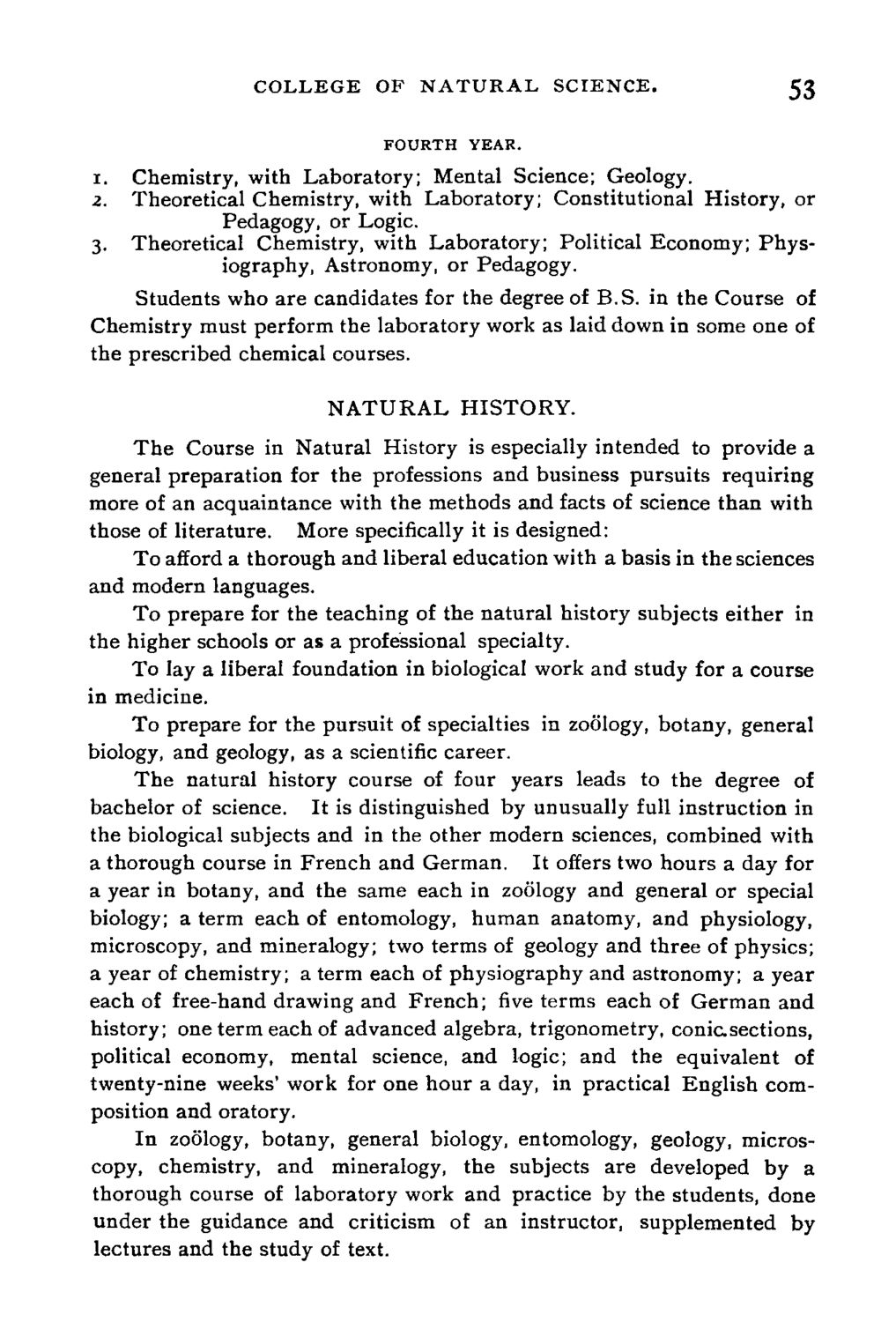| |
| |
Caption: Course Catalog - 1890-1891
This is a reduced-resolution page image for fast online browsing.

EXTRACTED TEXT FROM PAGE:
COLLEGE OF NATURAL SCIENCE. FOURTH YEAR. 53 1. Chemistry, with Laboratory; Mental Science; Geology. 2. Theoretical Chemistry, with Laboratory; Constitutional History, or Pedagogy, or Logic. 3. Theoretical Chemistry, with Laboratory; Political Economy; Physiography, Astronomy, or Pedagogy. Students who are candidates for the degree of B.S. in the Course of Chemistry must perform the laboratory work as laid down in some one of the prescribed chemical courses. NATURAL HISTORY. The Course in Natural History is especially intended to provide a general preparation for the professions and business pursuits requiring more of an acquaintance with the methods and facts of science than with those of literature. More specifically it is designed: To afford a thorough and liberal education with a basis in the sciences and modern languages. To prepare for the teaching of the natural history subjects either in the higher schools or as a professional specialty. To lay a liberal foundation in biological work and study for a course in medicine. To prepare for the pursuit of specialties in zoology, botany, general biology, and geology, as a scientific career. The natural history course of four years leads to the degree of bachelor of science. It is distinguished by unusually full instruction in the biological subjects and in the other modern sciences, combined with a thorough course in French and German. It offers two hours a day for a year in botany, and the same each in zoology and general or special biology; a term each of entomology, human anatomy, and physiology, microscopy, and mineralogy; two terms of geology and three of physics; a year of chemistry; a term each of physiography and astronomy; a year each of free-hand drawing and French; five terms each of German and history; one term each of advanced algebra, trigonometry, conic.sections, political economy, mental science, and logic; and the equivalent of twenty-nine weeks' work for one hour a day, in practical English composition and oratory. In zoology, botany, general biology, entomology, geology, microscopy, chemistry, and mineralogy, the subjects are developed by a thorough course of laboratory work and practice by the students, done under the guidance and criticism of an instructor, supplemented by lectures and the study of text.
| |